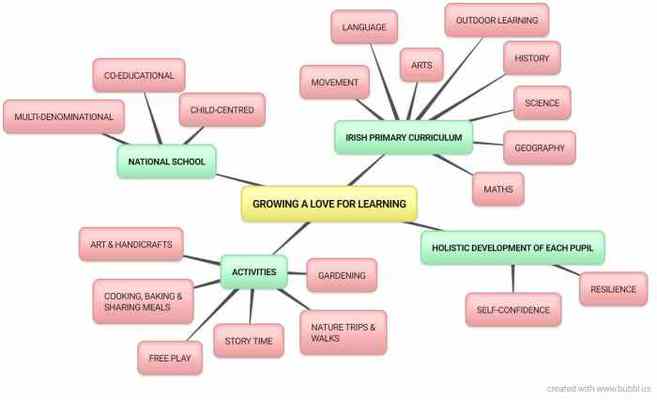Koijärvi school and kindergarten in Forssa Finland 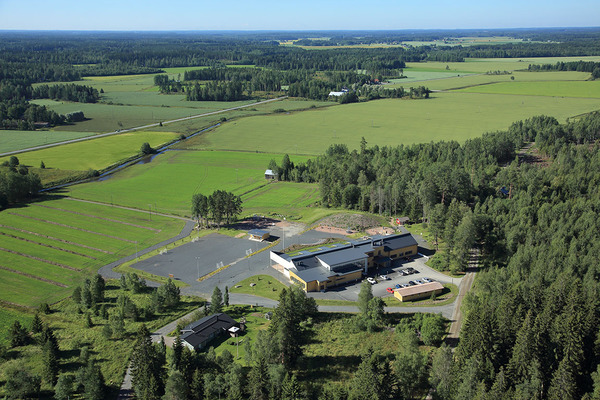
Koijärvi school is on a countryside of Forssa city. 20 km away from Forssa and 120 km away from Helsinki. In the kindergarten we have 51 children from age 1 to 6 years old in three groups. In the school we have class 1.-2., 3.-4. and 5.-6. all together 66 pupils. 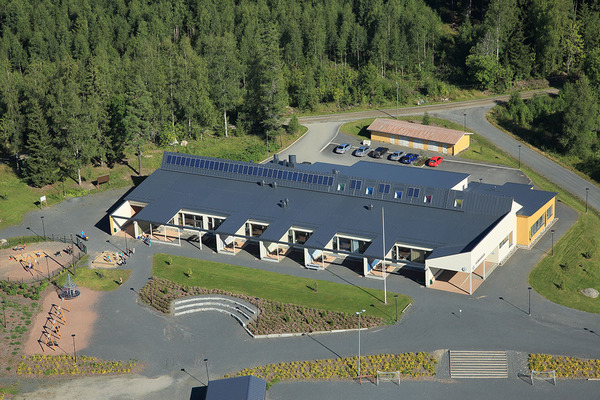
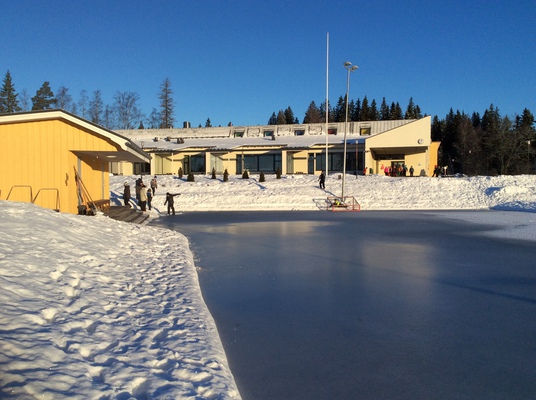
4-th Primary school "Professor John Atanasov"
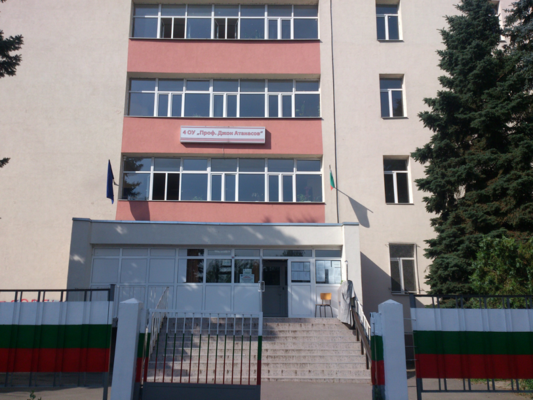
is Bulgarian public school in Sofia - the capital of Bulgaria
During the 2018/2019 school year, 822 pupils from 1st to 7th grade were taught and educated in the school, divided into 32 classes and around 420 were covered in a whole-day organization of the school day in 19 groups from 1st to 4th grade. Also in 4 -th Primary school learn 14 children in preparotory grade. We have children with SOPs who are individually trained and supported by a resource teacher, speech therapist and psychologist. We are around 80 teachers.
The education process is organized in two grades by classes and duration of training as follows:
1. Preprimary class - 1 year
2. Primary І - ІV grade - 4 years
3. Secondary stage V - VII grade - 3 years
The first foreign language course in English is available at the school, and 5th grade in mathematical and linguistic classes, with an intensive study of Spanish and Russian as a second foreign language.
Extracurricular activities - chess, modern dances, folk dances, karate, English, volleyball and soccer.
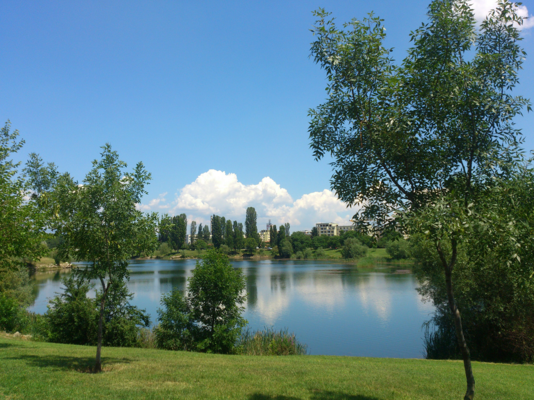
**********************************************************************************************
Kohila Gümnaasium is located in small Estonian town Kohila. But this town is very close to the capital of Estonia - Tallinn.
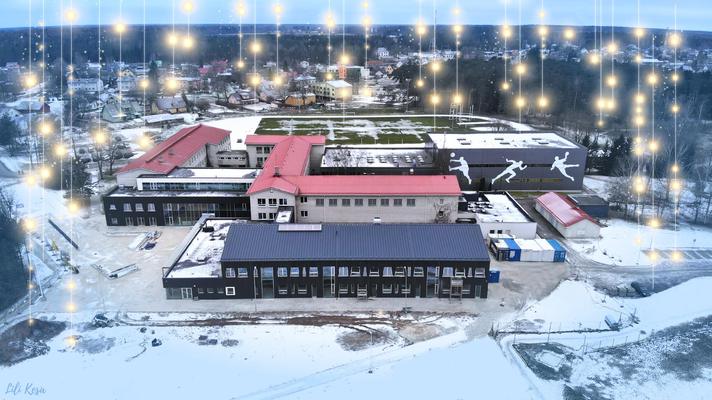
There are more than 900 pupils studying in Kohila Gümnaasium, 1st to 12th grade. One of our main goals to provide pupils not only with subjects' knowledges but also help with their future determination via organising different events and non-formal education.
We have different school traditions, for example every year 11th grade pupils preparing Christmas play.
--------------------------------------------
The Ventanielles Bilingual School is located in the city of Oviedo, capital of the province of Asturias, in the north of Spain, on the coast of the Cantabrian Sea.
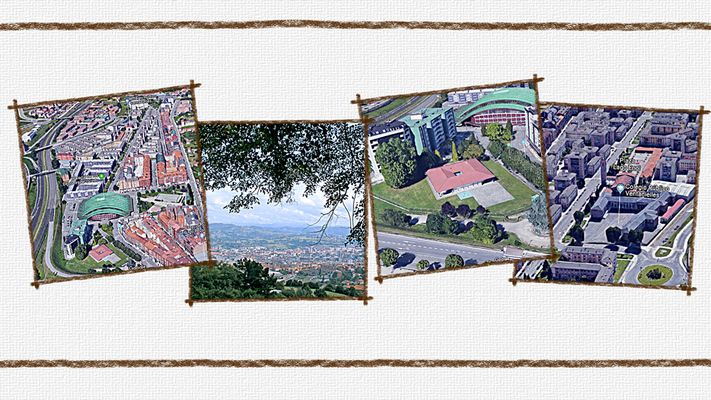
CP Ventanielles is located in a peripheral area of the city of Oviedo, in the neighborhood of the same name.
In its origin, the neighborhood was born from a concept as a housing estate for working classes and immigrants from both Asturian rural areas and other Spanish regions, a character that, in a way, maintains today, although the population structure is it has been modified due to two different processes: the availability of low-cost social housing and, more recently, the new construction of houses to which young families have access.
CP Ventanielles teaches children and primary education in the framework of an Integrated Spanish-English Curriculum Project. At present, 9 units of Early Childhood Education and 18 of Primary Education operate. As a physical area, it is constituted by a set of buildings linked by common spaces, except for the 3 and 4 year old Infant Education, which is at an approximate distance of 800 m., At the other end of the neighborhood.
- Our center will not be limited to transmitting knowledge; we ask ourselves to train people capable of living and living in society, people who know what to expect and how to behave.
- We will make Moral and Civic Education a transversal dimension to all areas.
- One of our fundamental objectives will be to train future citizens to participate actively in a complex and continuously changing society.
- Our way of acting will be aimed at developing also feelings of solidarity towards the most disadvantaged, contributing to suppress discrimination and inequality, whether by reason of birth, race, sex, religion or opinion.
- We will pay special attention to the integration of students with n.e.e, to the schooling of the ethnic or cultural minority groups and to the specific attention of the peculiar needs of the area in which our center is located.
- We will put special emphasis on:
- Programs of attention to diversity.
- Action Plans Tutorial.
- Specific activities of coexistence ... etc.
- We will put a special interest in favoring the school-family relationship through:
- Organization of talks, colloquiums, debates ... etc. with center staff or external consultants. Mainly in the Cultural Days.
- Joint celebrations and open days, bringing the family closer to their children's school.
- Requesting aid from organizations outside the center that collaborate openly in our claims
* * * * * * * * * * * * * * * * * * * * * * * * * * * * * * * * * * * * * * * *
Galway Steiner National School
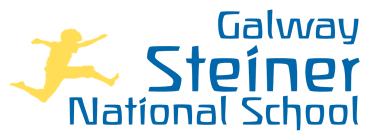
Galway Steiner National School opened its doors on the 1st of September 2015, with the Junior Infant class, and it will grow by one class each year up to 6th class. The school will deliver the Irish Department of Education’s Curriculum in accordance with Steiner Waldorf pedagogy.
The school is run by the teachers and overseen by a Board of Management. Parental involvement is extremely important to Galway Steiner National School and all parents will automatically be part of the Parent Teacher Association (PTA) which promotes the interests of the students in the school in co-operation with the board.
Steiner education is a child-centered education that seeks to nurture ‘the hand, the head and the heart’ of every child. It is a holistic, child-centered pedagogy that:
- is co-educational, multi-denominational, democratic and committed to cultural diversity and social equality;
- emphasises nature-based play and education, strengthening the child’s connection to nature;
- develops a love of learning and an enthusiasm for school;
- sees artistic activity and the development of the imagination as integral to learning;
- takes account of the needs of the whole child – academic, physical, emotional and spiritual;
- delivers the Irish curriculum, but in a creative and integrated way;
- prioritises age-appropriate learning, adapting its teaching methods to suit the developmental stage of its pupils, as well as their experience of the world.
Source: Pearse O Shiel, Chairman of Lifeways Ireland
Through our arts rich approach, we cultivate knowledge, creativity and practical skills. The Irish primary curriculum is delivered in an integrated and developmentally appropriate way with a strong emphasis on movement, music, art, handwork, drama, and outdoor learning.
The holistic development of each pupil is nurtured in order to foster in them the self-confidence and resilience necessary to take their place in the community as creative, well-balanced and responsible people.
